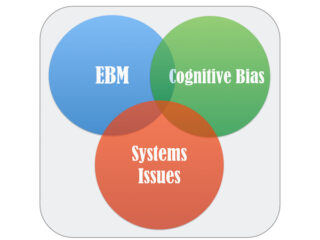Episode 75 Decision Making in EM – Cognitive Debiasing, Situational Awareness & Preferred Error
While knowledge acquisition is vital to developing your clinical skills as an EM provider, using that knowledge effectively for decision making in EM requires a whole other set of skills. In this EM Cases episode on Decision Making in EM Part 2 - Cognitive Debiasing, Situational Awareness & Preferred Error, we explore some of the concepts introduced in Episode 11 on Cognitive Decision Making like cognitive debiasing strategies, and some of the concepts introduced in Episode 62 Diagnostic Decision Making Part 1 like risk tolerance, with the goal of helping you gain insight into how we think and when to take action so you can ultimately take better care of your patients. Walter Himmel, Chris Hicks and David Dushenski answer questions such as: How do expert clinicians blend Type 1 and Type 2 thinking to make decisions? How do expert clinicians use their mistakes and reflect on their experience to improve their decision making skills? How can we mitigate the detrimental effects of affective bias, high decision density and decision fatigue that are so abundant in the ED? How can we use mental rehearsal to not only improve our procedural skills but also our team-based resuscitation skills? How can we improve our situational awareness to make our clinical assessments more robust? How can anticipatory guidance improve the care of your non-critical patients as well as the flow of a resuscitation? How can understanding the concept of preferred error help us make critical time-sensitive decisions? and many more important decision making in EM nuggets...


